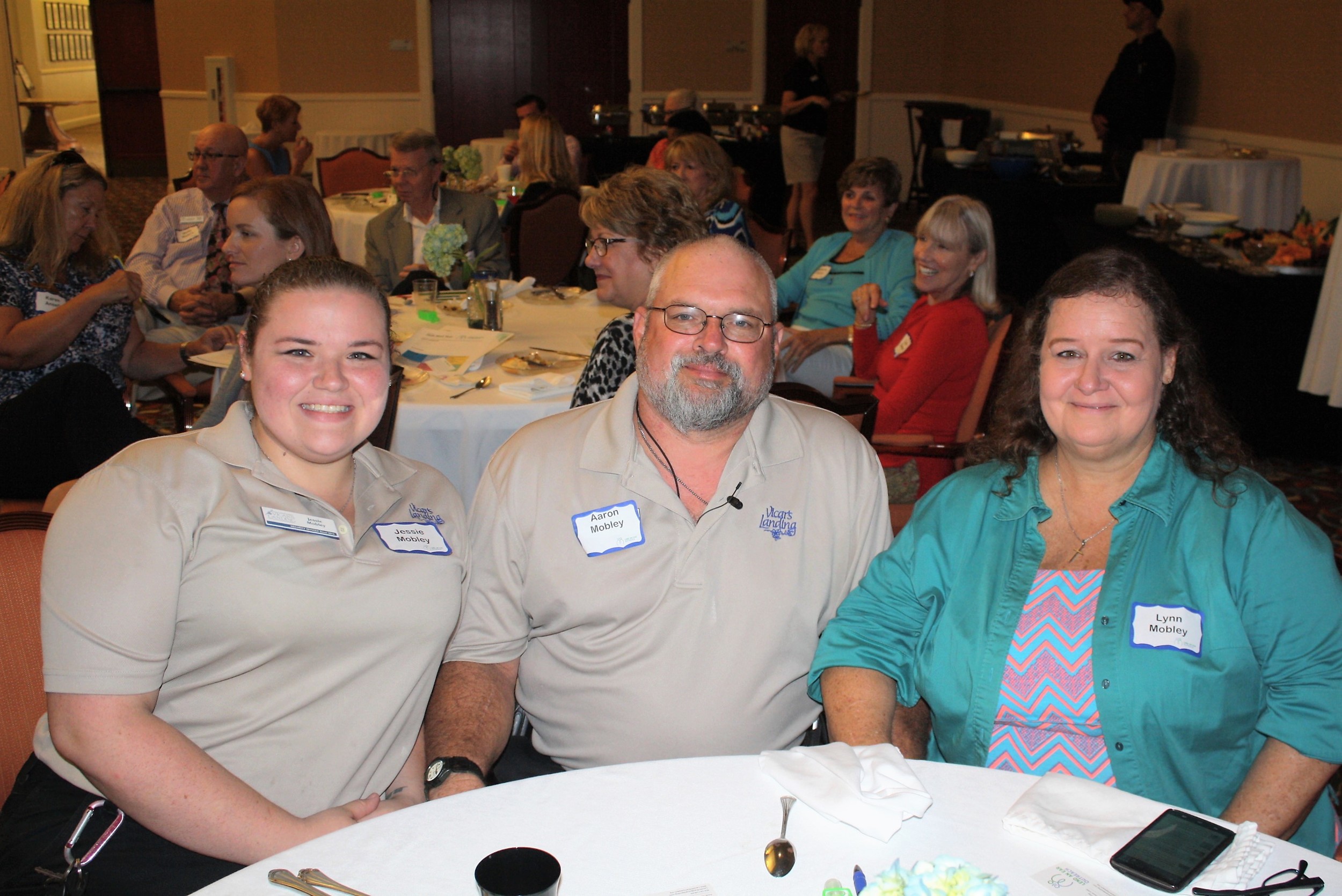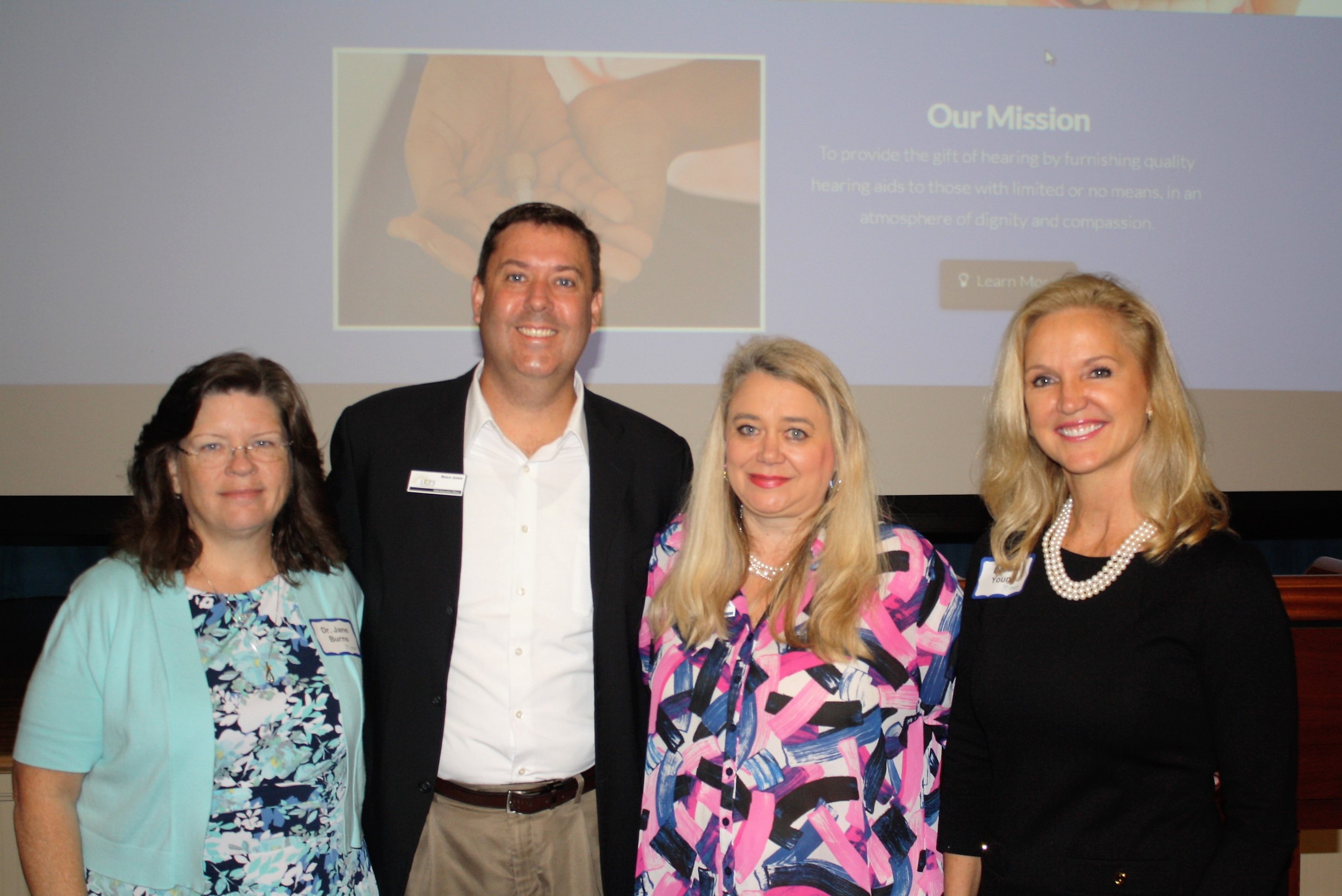Senior care providers join forces to jumpstart Lend an Ear Outreach
Nonprofit seeks used and discarded hearing aids to refurbish for those in need
When an elderly loved one dies, the person’s hearing aids often end up being tossed in a drawer or even the trash. A local nonprofit is mounting a renewed effort to change that, however, by collecting and refurbishing used hearing aids in order to give those in need the gift of hearing.
Lend an Ear Outreach held a kick-off breakfast last week to celebrate its new partnership with Vicar’s Landing and its revitalized focus on addressing the many health problems related to untreated hearing loss. Held Sept. 16 at Vicar’s Landing, the breakfast brought together representatives from numerous local senior living facilities and organizations that work with aging populations.
“Modern hearing aids are expensive and many people can’t afford them,” said Bruce Jones, CEO of LCPS Management, which oversees Vicar’s Landing. “The simple gift of hearing can have an immense impact. We’re thrilled to be part of creating the future of Lend an Ear.”
The gift of hearing
The Lend an Ear Outreach story began in 2010, when Lisa Sheek, a social services coordinator at Pablo Towers in Jacksonville Beach, met with a senior of limited means who had purchased a $10,000 hearing aid on credit. When the device later malfunctioned, she returned to the place where it was purchased, only to be told that all they could do was extend her additional credit to purchase another hearing aid.
“This woman was in tears,” Sheek said. “She was isolating herself; she stopped going to the Friday night movies because she said she didn’t know when to laugh. I was desperate to help her.”
Sheek met with Dr. Jane Burns, an audiologist who told her that used hearing aids could be refurbished for a fraction of the cost of purchasing a new one.
“New hearing aids can cost up to $15,000,” Sheek said, “and for less than a few hundred dollars we can refurbish a used mechanism and place it in a new ear mold, and that person now has the ability to hear.”
Working with Dr. Burns and other volunteers, Sheek founded Lend an Ear Outreach. After receiving 501 c 3 nonprofit status, the organization began reaching out to local hospitals, funeral homes and other locations in their quest to collect, refurbish and donate hearing aids. To date, the all-volunteer organization has helped 200 people regain their hearing.
A new partnership
One of those recipients, Aaron Mobley, would prove critical in establishing the partnership between Lend an Ear and Vicar’s Landing. The senior officer for security and transportation at Vicar’s Landing, Mobley was afraid his deteriorating hearing was going to cost him his job because he wouldn’t be able to pass the hearing test required to renew his commercial driver’s license.
According to his supervisor, Scott Hetzinger, Mobley looked into purchasing a hearing aid and received a price quote of $9,000.
“For the average person, $9,000 is just unobtainable,” Hetzinger said.
A member of Mobley’s church connected him to Lend an Ear, however, and within three days, Mobley had his hearing aids.
“It just shows what Lend an Ear does, who we are and how we want to help people,” said Hetzinger, who is credited with connecting Vicar’s Landing with the organization and creating the partnership that will help marshal the resources needed to collect and refurbish more hearing aids for donation to those in need.
Added Jones: “Vicar’s Landing has a similar mission (as Lend an Ear Outreach). Our staffs are committed and share a passion for ensuring the dignity of the people we serve.”
Related health problems
Lend an Ear Outreach’s impact extends beyond restoring an individual’s hearing, senior care providers say. Debbie Young, CEO of A Care Connection, said research shows a correlation between hearing loss and a greater risk of falling.
“As a nurse in the home health industry, one of our biggest concerns is fall prevention,” said Young, one of Lend an Ear Outreach’s original board members. “I had the opportunity to see many residents struggling with hearing loss.
“It’s a cognitive overload,” she continued. “If you’re so focused on trying to decipher those garbled words around you, you don’t have the mental capacity to do that and walk at the same time.”
Individuals with hearing loss are also at greater risk of becoming socially isolated and developing dementia, Young added.
Seeking donations
Yet despite the benefits related to providing hearing aids, Young said, neither Medicare nor most insurance companies will cover the cost of hearing aids, which makes Lend an Ear Outreach’s efforts to collect, refurbish and donate the devices all the more important. The organization recently launched a new website – www.lendanearoutreach.org – where individuals can learn the locations of collection boxes where used hearing aids may be deposited for refurbishment and donation. Monetary donations may also be made through the website to support the costs associated with refurbishing the hearing aids and fitting them to new recipients.
“If we can prevent people from falling or from developing dementia by providing them with hearing aids, that’s something worth supporting,” Young said. “We’re really trying to save lives.”










